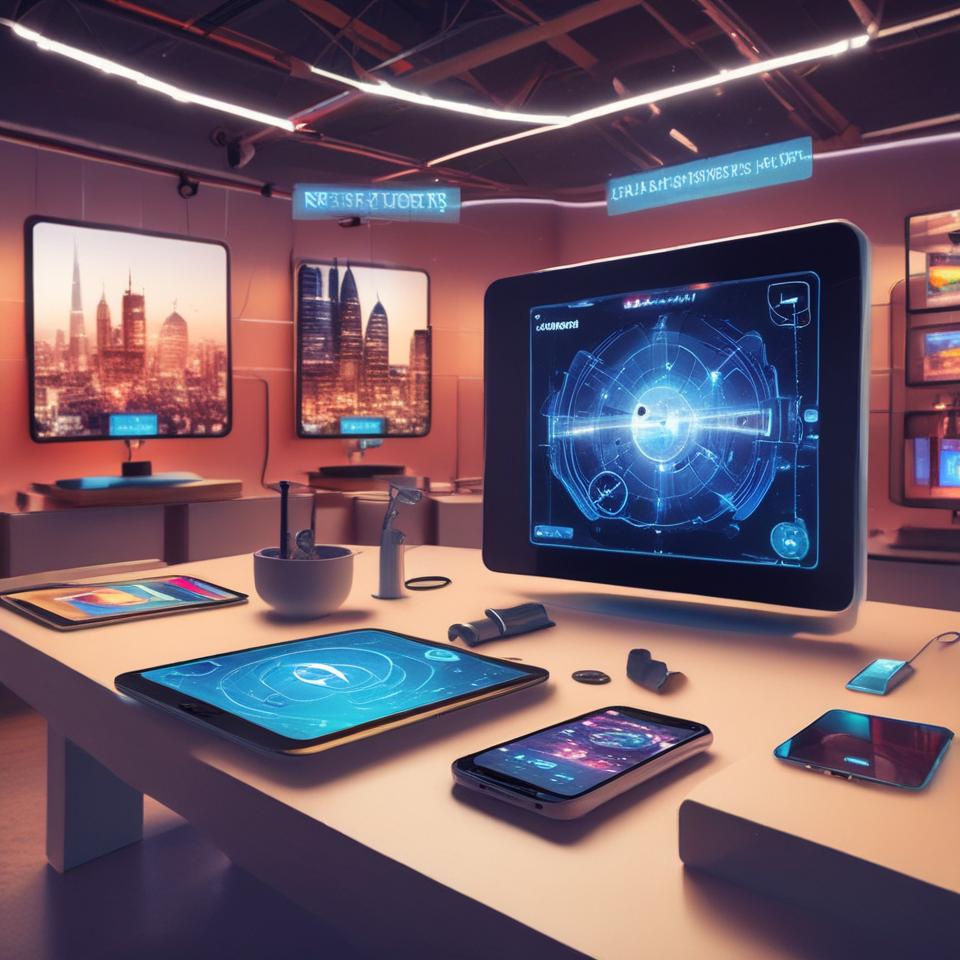 As we move toward 2025, the workplace is evolving rapidly, influenced by groundbreaking technologies that are reshaping how we work and collaborate. From artificial intelligence to virtual reality, these tech trends are set to transform the future of work. Here’s a closer look at the key tech trends that will redefine collaboration and productivity in the workplace.
As we move toward 2025, the workplace is evolving rapidly, influenced by groundbreaking technologies that are reshaping how we work and collaborate. From artificial intelligence to virtual reality, these tech trends are set to transform the future of work. Here’s a closer look at the key tech trends that will redefine collaboration and productivity in the workplace.1. Artificial Intelligence (AI) in the Workplace
Artificial Intelligence will play a pivotal role in the future of work by 2025. AI technologies will automate routine tasks, enabling employees to focus on higher-level strategic activities. AI-driven tools will assist in data analysis, project management, and customer service, leading to improved decision-making and efficiency. Businesses that leverage AI effectively will gain a competitive advantage by streamlining operations and enhancing productivity. Tech Trends to Watch in 2025
2. The Rise of Remote and Hybrid Work Models
The traditional office model is being challenged as remote and hybrid work become the norm. By 2025, companies will adopt flexible work arrangements that allow employees to work from anywhere. This shift will be facilitated by advanced collaboration tools and cloud technologies, enabling seamless communication and project management across distributed teams. Employers who embrace flexibility will attract top talent and foster a more engaged workforce.
3. Enhanced Collaboration Tools
As teams become more geographically dispersed, collaboration tools will evolve to meet the demands of modern work. By 2025, expect to see advanced platforms that integrate video conferencing, project management, and real-time collaboration features. Tools powered by AI will facilitate smoother meetings, automate scheduling, and provide insights into team performance, enhancing overall productivity.
4. Virtual Reality (VR) and Augmented Reality (AR)
Virtual Reality and Augmented Reality technologies will revolutionize how teams collaborate and engage in training by 2025. These immersive technologies will provide virtual meeting spaces where teams can interact as if they were in the same room. AR will enhance remote training experiences, allowing employees to learn in interactive environments. Businesses that adopt VR and AR will improve knowledge retention and foster a more collaborative culture.
5. The Internet of Things (IoT) in the Workplace
The Internet of Things will continue to expand its reach within the workplace by 2025. Smart devices and sensors will collect data on employee productivity, energy usage, and workspace optimization. This data will enable organizations to make informed decisions about resource allocation and improve operational efficiency. IoT technology will also enhance the employee experience by creating smart work environments that adapt to individual needs.
6. Cybersecurity in a Remote Work Era
With the rise of remote work, cybersecurity will become a top priority for organizations. By 2025, businesses will need to implement robust security measures to protect sensitive data and ensure compliance with regulations. Expect to see advancements in AI-driven cybersecurity solutions, multi-factor authentication, and secure access protocols. Companies that prioritize cybersecurity will build trust with employees and clients, safeguarding their operations in a digital-first world.
7. Sustainable Work Practices
As environmental concerns grow, sustainability will become integral to workplace strategies by 2025. Organizations will adopt green technologies and practices, such as energy-efficient office designs and remote work policies that reduce carbon footprints. Companies that prioritize sustainability will not only meet regulatory requirements but also appeal to a growing base of environmentally conscious consumers and employees.
8. Data-Driven Decision Making
By 2025, the use of data analytics will be commonplace in the workplace, enabling organizations to make informed decisions based on real-time insights. Businesses will leverage big data to analyze employee performance, customer behavior, and market trends. This data-driven approach will enhance strategic planning and foster a culture of continuous improvement.
Conclusion
The tech trends shaping the future of work and collaboration in 2025 promise to create a more efficient, flexible, and engaging work environment. From AI-driven automation and remote work models to immersive technologies like VR and AR, organizations that embrace these innovations will position themselves for success in an increasingly competitive landscape. By staying informed and adapting to these trends, businesses can navigate the future of work with confidence and drive meaningful change.